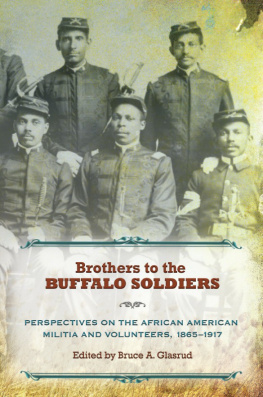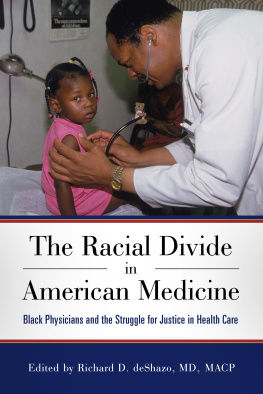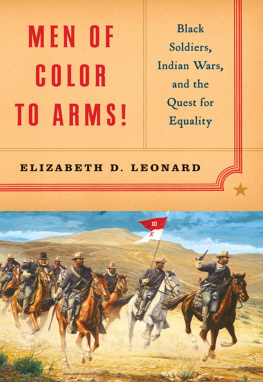Intensely Human
Intensely Human
The Health of the Black Soldier
in the American Civil War
MARGARET HUMPHREYS

2008 The Johns Hopkins University Press
All rights reserved. Published 2008
Printed in the United States of America on acid-free paper
2 4 6 8 9 7 5 3 1
The Johns Hopkins University Press
2715 North Charles Street
Baltimore, Maryland 21218-4363
www.press.jhu.edu
Library of Congress Cataloging-in-Publication Data
Humphreys, Margaret, 1955
Intensely human : the health of the Black soldier
in the American Civil War / Margaret Humphreys.
p. cm.
Includes bibliographical references and index.
ISBN-13: 978-0-8018-8696-6 (hardcover : alk. paper)
ISBN-10: 0-8018-8696-1 (hardcover: alk. paper)
1. United StatesHistoryCivil War, 18611865Participation,
African American. 2. United StatesHistoryCivil War,
18611865Health aspects. 3. United StatesHistory
Civil War, 18611865Social aspects. 4. Russell, Ira, 18151888.
5. African American soldiersHealth and hygieneHistory19th
century. 6. African American soldiersMortalityHistory19th
century. 7. MasculinityUnited StatesHistory19th century.
8. Body, HumanSocial aspectsUnited StatesHistory
19th century. 9. RacismUnited StatesHistory19th century.
10. United StatesRace relationsHistory19th century. I. Title.
E540.N3H86 2007
973.70896073dc22
2007013962
A catalog record for this book is available from the British Library.
Special discounts are available for bulk purchases of this book.
For more information, please contact Special Sales at 410-516-6936
or specialsales@press.jhu.edu.
For Will
CONTENTS
PREFACE
Anyone can do any amount of work, provided it isnt the work he is supposed to be doing at that moment. Thus Robert Benchley advised his readers in an essay on procrastination and accomplishment. He had five tasks to do, and he put writing a newspaper article at the top of the list. He spent the rest of the day not working on the article, but he finished the other four tasks with splendid ease. The pages that follow this preface are one more illustration of how much you can get done if you work hard enough at not doing the assignment boldly printed (and underlined in red) at the top of your list.
In my case, the official task was writing a history of medicine in the U.S. Civil War, and, more particularly, the wars effect on American medicine. I had grants with which to do that; I had a sabbatical during which to do that; I had a lovely office in the National Humanities Center in which to do that. But I havent done itat least not yet. Instead, that envisioned books chapter on black soldiers nibbled that seductive cake labeled eat me and morphed into a monograph all its own.
A major distraction from my stated purpose was Ira Russell, a Civil War physician whose writings abound in the papers of the United States Sanitary Commission, a voluntary organization that functioned something like the American Red Cross would in later wars. Russell was a compassionate physician who became engrossed with the cause of the black Civil War soldier and his health. He had first cut open a black body in 1843 or 1844 as a medical student in New York City, where many of the bodies intended for dissection were shipped in barrels from the South. After returning home to New England and settling in Natick, Massachusetts, he
Letters and reports by Russell and others reveal a deep fascination with the workings of the black body among northern physicians newly exposed to black men in hospital and camp. The Civil War brought the fate of African Americans to the center of American consciousness. There were some 4 million slaves in the South; by 1863 it was clear that these people might soon be free and perhaps heading for the northern states. Would they be law abiding? Would they work without coercion? Were they healthy enough and smart enough to survive on their own? These questions were intense and immediate for many northerners, especially ones who had seen little of these dark-skinned people in the years before the war.
Russell and like-minded physicians saw in the vast experiment of recruiting black men into the Union army an opportunity for scientific study and medical progress. The Sanitary Commission surveyed doctors who had treated large numbers of black soldiers, inquiring into areas of difference. Black soldiers were measured, weighed, and tested when they left the army and were compared to white men. With great interest, northern physicians, including Russell, dissected the black body for clues as to its distinctiveness. And they had many bodies to explore, for poor treatment led to high rates of disease and death among black troops. Russell loudly protested the mistreatmentand was overtly proud of his autopsy work.
, emphasizes how these arguments about the black body were used within the broader debates about the place of the black man in the strange new world that would emerge from emancipation and the war.
The reasons for high black mortality rates, described briefly by earlier historians, are made clearer here by close studies of particularly morbid environments in St. Louis, South Carolina, Louisiana, and Texas. demonstrate the importance of these issues in determining the health of a regiment, while also heralding the influence of a few literate black men and the compassion of a few white advocates for the black troops.
dissects this contemporary debate and then considers the mid-nineteenth-century discourse on certain key diseases.
The book concludes with a discussion of how the black soldiers health experience was twisted and interpreted after the war to reinforce existing stereotypes and direct blame away from the white hierarchy that created the conditions in which disease thrived. Russell, who lived into the 1880s, is strangely silent after war; others used his information in the decades after the war to tell a tale that must have made him cringe. Perhaps once back in Natick, he wanted only to put the war experience behind him. The epilogue briefly considers the black soldiers experience following the war, drawing largely on Civil War pension records.
Many histories of Civil War medicine focus on the battlefield and the gory events that immediately followed the volleys of shot and shell. Regarding white soldiers, much has been written about ambulance organization, field hospitals, and care at more general hospitals. Much of that information is missing for black soldiers. First, black regiments participated in many fewer battles than whites, as the military hierarchy felt they were better deployed on garrison duty than the front lines. Second, much of what we know about white soldiers experience comes from diaries, letters, and official reports, which are scarce for black troops. The men themselves were largely illiterate, and their officers were less likely to give written attention to the medical issues of black men. The story that follows has been pieced together at times from thin scrapsa letter in the National Archives here, a newspaper column thereoften held together by the strong mesh of the Sanitary Commission documents. While it may lack the thickness of some accounts of the white soldier, it is a story that deserves telling, patches and all.
Black soldiers in the American Civil War were far more likely than their white comrades to die of disease. Many of them entered the war disadvantaged by a lifetime of malnutrition and the immunological naivet engendered by their rural pasts. Others suffered deprivation in the days and weeks just preceding induction, making them even more susceptible to disease when crowded into camps. Much of this mortality, however, can be traced to specific choices made by officers, bureaucrats, and other authority figures, who proved poor stewards of the men in their care. Their decisions, great and small, careless and deliberate, doomed these soldiers to early graves.
Next page






